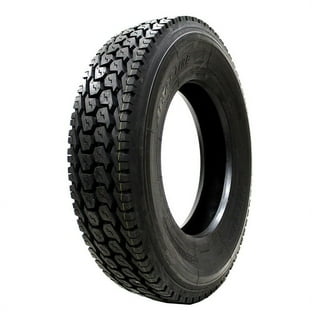Budget Friendly Discount Tires Morris IL: Irresistible Costs, Quality Ensured
Wiki Article
Tire Service: Recognizing Tire Stress Surveillance Solutions
Recognizing Tire Pressure Monitoring Solutions (TPMS) is an essential element of keeping ideal vehicle performance and safety and security when driving. With improvements in auto technology, TPMS has actually ended up being a conventional function in modern-day vehicles, providing real-time information on tire pressure levels. Diving deeper right into the details of TPMS, one can discover the various elements that compose this system and the relevance of each in guaranteeing accurate tracking. From straight to indirect TPMS systems, the landscape of tire stress monitoring is varied, each with its unique collection of benefits and factors to consider. Stay tuned to decipher the intricacies of TPMS, from maintenance pointers to the undeniable benefits of maintaining your tires appropriately inflated. discount tires morris il.
Importance of TPMS
The value of Tire Pressure Monitoring Systems (TPMS) hinges on their capacity to improve vehicle safety and security and efficiency via real-time tracking of tire pressure levels. Maintaining the proper tire pressure is crucial for making sure optimal handling, stopping, and general safety and security of a car. TPMS supplies drivers with prompt comments on any type of underinflated or overinflated tires, enabling prompt adjustments to be made.
Elements of TPMS
Consisting of different crucial elements, a Tire Pressure Tracking System (TPMS) works as an innovative security feature in modern-day cars. The main elements of a TPMS consist of sensing units, a control module, and a caution indication. Sensing units are typically located in the tire shutoff stem or connected to the wheel assembly, where they determine tire stress and transfer data to the control module. If it spots substantially reduced pressure in any of the tires, the control module processes this information and activates a caution. The warning indication, typically an icon on the dashboard, informs the motorist to examine the affected tire or tires. Some advanced TPMS versions likewise show the real tire stress readings for each tire, giving drivers with real-time information to make certain ideal tire performance and safety and security. By checking tire pressure constantly, TPMS assists protect against accidents, minimizes tire wear, and boosts fuel performance, making it a vital part for vehicle safety and efficiency.
Kinds Of TPMS

On the other hand, indirect TPMS counts on the lorry's wheel speed sensors to keep track of tire pressure. This system identifies underinflation by contrasting the rotational speeds of the wheels. Indirect TPMS is much less expensive than straight TPMS, as it uses existing sensors within the car.
While direct TPMS provides more accurate analyses, indirect TPMS is simpler in layout and usually requires much less upkeep. Both systems have their benefits and constraints, and the choice between them usually depends on elements such as cost, lorry make, and personal choice. Recognizing the distinctions between these two sorts of TPMS can assist car proprietors make notified decisions relating to morris tire and alignment tire maintenance and security.
TPMS Upkeep Tips
Conduct routine checks on the tire pressure levels and compare them with the TPMS analyses to ensure they are consistent. During tire rotation or replacement, make sure that the TPMS elements are managed very carefully to stop any kind of prospective damage. If the TPMS advising light illuminates on the control panel, resolve the issue promptly by examining the tire pressures and the overall system for any faults.Advantages of Appropriate Tire Stress
Keeping proper tire pressure, as highlighted in TPMS Maintenance Tips, is critical for gaining the many advantages associated with optimal tire pressure degrees. One of the key benefits of keeping the correct tire pressure is enhanced fuel efficiency. When tires are correctly inflated, there is much less rolling resistance, leading to better gas economic situation. In addition, appropriate tire pressure makes sure also tire wear, prolonging the life expectancy of the tires and promoting much safer driving conditions. With the ideal tire pressure, automobiles likewise have better handling and grip, especially in unfavorable climate condition. This can enhance total driving performance and security for the motorist and guests. Maintaining optimum tire pressure can contribute to a smoother and more comfortable trip by minimizing resonances and sound triggered by underinflated tires. In conclusion, the advantages of appropriate tire stress exceed simply tire long life; they include improved fuel efficiency, boosted safety and security, much better lorry efficiency, and general driving comfort.Conclusion
In final thought, comprehending tire stress monitoring systems (TPMS) is essential for preserving optimum tire pressure and ensuring lorry safety. By identifying the value of TPMS, being acquainted with its components, knowing the various kinds available, adhering to correct upkeep tips, and understanding the benefits of keeping correct tire stress, chauffeurs can improve their driving experience and lengthen the life-span of their tires. Appropriate tire stress is key to reliable and secure lorry operation.
Report this wiki page